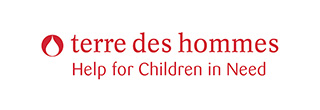Our rights
What does ‘Children’s Rights’ actually mean? Does it mean you can do what you like, behave as you like, and no one can stop you? Hmm, you wish! Seriously though, if you are reading this, chances are that you already have your basic rights – you are alive, you are protected, you are getting an education, and you have a chance to express yourself and be heard. But you know that not all children in this world have these rights. You have seen such children around you, and you feel not so good about it. That’s why you are reading this, right?
Twenty years ago, the United Nations wrote down the basic rights that all children – boy or girl, healthy or ill, black or white, rich or poor, with different kinds of families and different abilities – all children must have. This is called the United Nations Convention on the Rights of the Child. A convention is an agreement between all the countries. India, too has signed this convention.
The UN declared that all children have the right to:
Survival

Are you an adopted child, or do you know someone who is?
Read the story of adoption “Your Story” Download Pdf >>
The UN Conventions says that:
- All children have a right to live, to have a name and nationality, and to be with their families as far as possible. If a child is to be adopted, the most important thing that adults must think of is what is best for the child.
- All children have the right to good quality health care, special care if they have disabilities, and to clean water, nutritious food, and a clean environment, so that they will stay healthy. The government should help families to provide all this.
But do all children get these rights?
Out of every 1000 children born in India, 31 die before they are one year old. In contrast, in Japan and Singapore, less only 2 or 3 out of 1000 children die before they are one year old.
Girls are particularly neglected and many die early. And many, many girl babies are killed even before they are born. For every 1000 men in India, there are only 933 women. Isn’t that a scary thought?
Paper on Adoption : Click here to download Pdf file
Development

The UN Conventions says that:
- All children have the right to a good education that is free at least up to the elementary level.
- Schools should be places where children are respected and treated with dignity. Children should be able to develop their personality and talents.
- All children have the right to learn and use the language and customs of their family.
- All children have the right to relax and play.
- The government must protect children from work that is dangerous or prevents their development.
But do all children get these rights?
40 million children in India work as child labourers, never going to school and having no chance do develop
Most children in India who do get a chance to go to school go to government-run schools which are often dirty, where they are not taught well, where don’t have books or toys or learning aids, and where they are not treated with respect. Only a very small percentage of children go to good schools where they are cared for and taught well. Are you one of the lucky ones?
Protection

The UN Conventions says that:
- All children should be protected from violence and neglect.
- Children must be protected from sexual abuse and dangerous drugs.
- The government must make sure that children are not abducted and sold.
- Children who may have broken a law should not be treated cruelly but helped by adults.
- Children in war zones, and those who have been neglected or abused should be given special care.
But do all children get these rights?
Thousands of children each year are bought or kidnapped by agents from poor rural areas, and sold as domestic workers or exploited in many other ways.
Children are sometimes abused by adults within their own families. Not all children are safe.
View Child Safeguarding Policy: English | Hindi
Participation

Read about Children Against Child Labour Download Pdf >>
The UN Conventions says that:
- All children have the right to say what they think when adults are making decisions about them. Adults must listen and think about what children are saying.
- Children have the right to get information from books, tv, radio and newspapers.
- Children have the right to think and believe what they want, practice their religion, and parents and other adults should guide them.
- Children have a right to meet together, and to join groups and organizations, as long as these do not harm them or others.
But do all children get these rights?
Has anyone asked you your opinion about your school, your city, your environment?
At home, do the adults discuss with you when any major change is going to happen, like a change of home, school, etc?
If yes, then you are among the lucky few. Most children have never had a chance to be heard!
But many children think about and care about serious issues.
